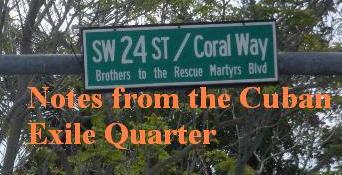"The use of the atomic bomb, with its indiscriminate killing of women and children, revolts my soul." - Herbert Hoover, former President of the United States, August 8, 1945
Seventy years ago today the logical and sterile end of progressivism was visited on the people of Japan when the Enola Gay dropped an atomic bomb on Hiroshima on August 6, 1945. Three days later Bockscar dropped a second one on Nagasaki. Despite American military leaders urging President Truman not to drop the atomic bomb the commander in chief had chosen otherwise. Conservatives at the time of the bombings and through the 1950s and 1960s denounced the bombings as "crimes against humanity" for "the utterly unnecessary killing of uncounted Japanese." David Lawrence of U.S. News and World Report argued it was "not too late to confess our guilt and to ask God and all the world to forgive our error." William F. Buckley Jr. asked 'was it really necessary?' in a March 29, 1958 editorial and an article appeared in National Review harshly critical of Truman's decision. Russell Kirk, probably the greatest conservative thinker of the 20th century outlined the folly of progressivism.
Seventy years ago today the logical and sterile end of progressivism was visited on the people of Japan when the Enola Gay dropped an atomic bomb on Hiroshima on August 6, 1945. Three days later Bockscar dropped a second one on Nagasaki. Despite American military leaders urging President Truman not to drop the atomic bomb the commander in chief had chosen otherwise. Conservatives at the time of the bombings and through the 1950s and 1960s denounced the bombings as "crimes against humanity" for "the utterly unnecessary killing of uncounted Japanese." David Lawrence of U.S. News and World Report argued it was "not too late to confess our guilt and to ask God and all the world to forgive our error." William F. Buckley Jr. asked 'was it really necessary?' in a March 29, 1958 editorial and an article appeared in National Review harshly critical of Truman's decision. Russell Kirk, probably the greatest conservative thinker of the 20th century outlined the folly of progressivism.
"This doctrine of progress is a most interesting instance of the blind and foolish confidence of Americans in the God Progress. None of them—not Joseph Smith, not William James, not John Dewey—know what this progress is toward, not even what direction it is to take. Thus far, apparently, it has been progress toward annihilation, an end to be accomplished, perhaps, by the improved atomic bomb? We have dealt more death and destruction in the space of ten years than the men of the Middle Ages, with their Devil, were able to accomplish in a thousand."Ronald Reagan, unlike his more moderate predecessors, rejected the doctrine of Mutual Assured Destruction (MAD) and coexistence with the Soviet Union. On August 6, 1985 President Reagan on the 40th anniversary of the bombing of Hiroshima made the following observation and call to action:
We must never forget what nuclear weapons wrought upon Hiroshima and Nagasaki, yet we must also remain mindful that our maintenance of a strong nuclear deterrent has for four decades ensured the security of the United States and the freedom of our allies in Asia and Europe. In Europe, these years represent the longest period of peace since the early 19th century. Peace has not made us complacent, for we are continually seeking ways to reduce still further the risks of war. As I have often stated, "A nuclear war cannot be won and must never be fought." This anniversary is, therefore, a time not only for reflection but for action.Times change and the rising tide of militarism in American society of the past 70 years has contaminated the political culture. The massacring of innocents in both Hiroshima and Nagasaki is a great moral evil that Americans must recognize, repent and beg forgiveness. This does not ignore the war crimes of Imperial Japan but recognizes that there is a difference between combatants and non-combatants. Catholic Catechism number 2314 states forthrightly that:
[...]
I would also urge the leadership of the Soviet Union to work with us to achieve deep, verifiable, and equitable reductions in nuclear arsenals; to resolve questions relating to compliance with existing arms control agreements; and to establish a constructive dialog on ways to reduce the risk of accidental war.
“Every act of war directed to the indiscriminate destruction of whole cities or vast areas with their inhabitants is a crime against God and man, which merits firm and unequivocal condemnation.”Beginning today nonviolent activists will gather at Los Alamos to observe this anniversary of a war crime over live stream at the exact spot where the bomb that fell on Hiroshima was built. American patriots need to recognize this in order to save the United States and the West generally. Conservatives are justifiably horrified by the radical changes in American society over the past half century. Arch Bishop Fulton J. Sheen in the essay“What Now America?” reflected on the impact of the atomic bombs:
“When, I wonder, did we in America ever get into this idea that freedom means having no boundaries and no limits? I think it began on the 6th of August 1945 at 8:15 am when we dropped the bomb on Hiroshima. … Somehow or other, from that day on in our American life, we say we want no limits and no boundaries.”Time for conservatives to reflect further on the two atomic bombs dropped over two civilian centers and the principle that the ends do not justify the means. The world has never been the same since those horrible days in August of 1945.







No comments:
Post a Comment